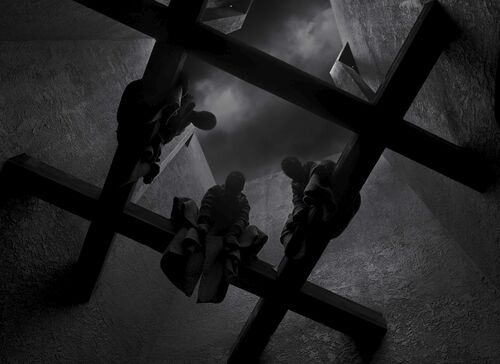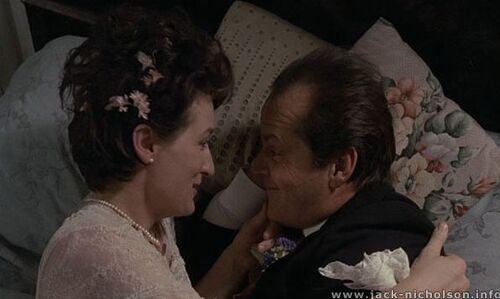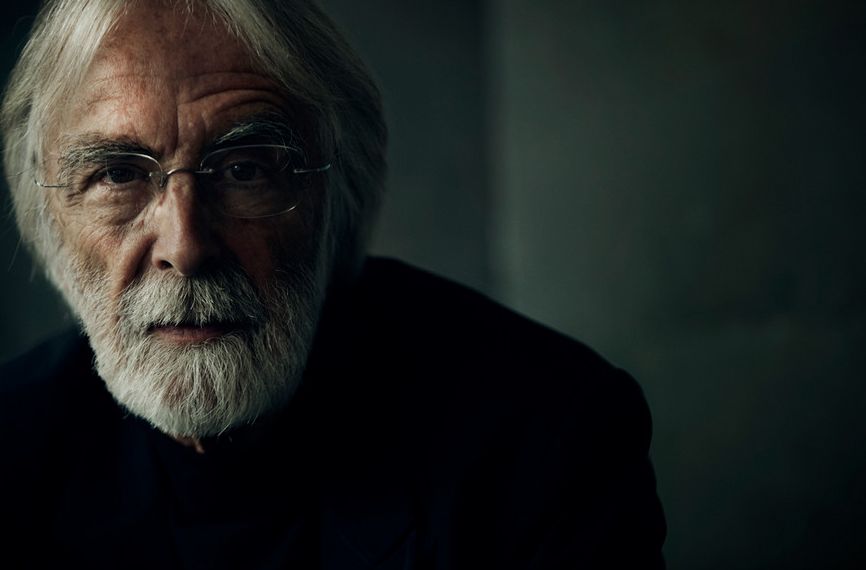
Exploring Michael Haneke: Funny Games (1997)
 In August of 2011, my mind freshly broadened from my first undergraduate film class, I chose to dive into the filmography of Michael Haneke.
In August of 2011, my mind freshly broadened from my first undergraduate film class, I chose to dive into the filmography of Michael Haneke.
Funny Games, the 1997 feature film from auteur Michael Haneke, is perhaps an odd entry point to his filmography, but the experience is one that had such a tremendous impact that I vowed to see more of his work. It took me seven years, but this Michael Haneke retrospective I've recently recommitted to is one that has turned into a favorite project. No doubt a difficult watch, Funny Games depicts the story of two violence-obsessed teenagers who begin a sadistic torture and murder rampage through an upscale vacation haven. The boys, who call themselves Peter (Frank Giering) and Paul (Arno Frisch) are seemingly educated and well-mannered young men making their turn to violence even more of a shock. The polite, controlled essence of the pair makes their descent to madness even more jarring. Haneke expertly subverts the audience's expectations by presenting his killers in crisp white clothes and donning smiles instead of scowls and raggedy garments. The audience, presented with such a contradiction of our own expectations is forced to examine our ideas of how violence is expected to look.
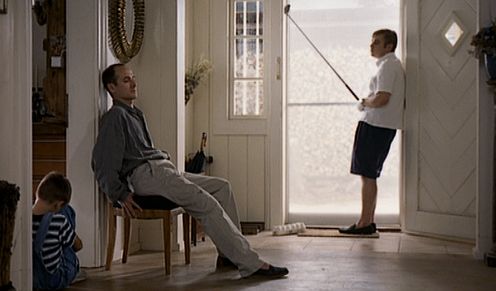
As with most films directed by Michael Haneke, Funny Games was met with mixed critical and audience reactions. Many audience members walked out during the debut of Funny Games when it screened at the Cannes Film Festival. Some, including famed French filmmaker Jacques Rivette, thought the film was distasteful. In an interview with Senses of Cinema in 2001, Rivette remarked: "What a disgrace, just a complete piece of shit!" Like many others, Rivette didn't see Funny Games as a piece of provocation with such violence used in a way to make audiences confront their relationship to it, as Haneke seemed to intend. What is it about Funny Games that makes it more than a sensationalized exploitation of violence and its victims? Why is such an uncomfortable film like Funny Games worth watching at all? The answer to these questions lies in Haneke's skill as an auteur. The way Haneke can infiltrate our senses by keeping the audience interconnected to the extreme situations in his films by showing the most relatable aspects of everyday life is effective in conveying to the audience that what we see onscreen is not far removed from the lives we live. Haneke also makes a profound statement on the family dynamic in Funny Games. The family in Haneke's film is dependent upon each other once their uninvited guests arrive and overtake their home; they are wholly reliant on one another for their survival, yet, are also pitted against each other in interesting ways throughout the film, as well. The family dynamic plays a fascinating role in all of Haneke's films but is under an especially absorbing microscope in Funny Games. The family in the film run the gamut of emotions both between themselves and each other, and the emotional impact of the film is what resonates long after the violence subsides. A film about captivity, dependency, and desperation, Funny Games deserves so much more than to be written off as 'torture porn' or a sadistic experiment in ultraviolence, as so many critics have. As distressing as a viewing of Funny Games is, there is a lot to be learned about ourselves and others through Michael Haneke's self-aware film.
Perhaps one of the most notable scenes of Funny Games takes place near the beginning of the film and sets the tone, in many respects, for the entire film. Just before the family of the film, comprised of Anna (Susanne Lothar) Georg (Ulrich Mühe) and Georgie (Stefan Clapczynski) arrive at their summer home, they see friends of theirs with a young man they don't know in their yard. Anna and Georg let their friends know they've arrived, ask for help getting their boat docked, and drive into their gated vacation home and settle in. The power scene comes as a stranger, one of the boys seen at their neighbor's house, knocks on their door asking to borrow eggs. Anna lets him in and begins to retrieve eggs for him to take back with him, as it is presented as if they are staying at their neighbor's house. Throughout the scene with the eggs, the visitor, Peter (Frank Giering) immediately establishes a sense of dominance and control over his interaction with Anna. Despite maintaining a courteous and almost amenable disposition, there is an energy to his presence that upsets Anna. Retaining all of the social niceties prevalent in western society, yet still inaugurating an uncomfortable sense of sovereignty over the home he is visiting sets in motion the understanding to Anna that her family may be in danger. The negative energy Peter brings to the room is something the audience can discern too and only intensifies when his partner Paul (Arno Frisch) appears. Paul inserts himself into the narrative at an especially vulnerable time as Peter had just incapacitated Anna's cell phone leaving her family in a precarious position. Georg re-enters the home as his wife is emotionally shaken by the air of the two boys begging her husband to throw them out. Instead of heeding his wife's instructions, Georg attempts to calm her down and ascertain the situation. Unwilling to appear rude to his guests, Georg hesitates to throw them out until it is too late. It is only after the first strike of violence, a blow to Georg's leg by the hand of Peter using Georg's own golf club is it clear to the family that they are no longer in control of their destiny. As the abundant sunlight disappears to the ominous darkness of the evening, Haneke drains the color from his film in a brilliant bit of cinematic language to communicate to the audience that there is a unique brand of evil exacted onscreen.
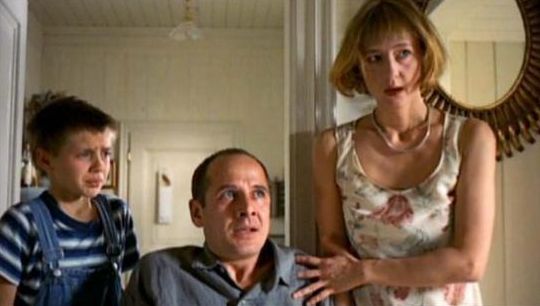
The family dynamic explored through a unique lens in all of Michael Haneke's films. In 71 Fragments of a Chronology of Chance, we see a score of strained families struggling to interact with each other lovingly and respectfully. In The Piano Teacher, we see a mutually physically and emotionally abusive mother and daughter pair. Finally, in Benny's Video, we witness a young boy practically neglected by his working parents. In each film, we see some level of downfall brought about by these fractured relationships and the emotional impact they leave behind. As with each of his other films, Funny Games explores the family dynamic as it relates to captivity and forced betrayal. There are moments throughout the film where Anna and Georg are forced to pick between a variety of unpleasant outcomes that affect the other members of their family. Peter and Paul seem to be implanting the fear of betrayal between the family members when they are most dependent on each other in hopes to survive. Manipulation of the vulnerable is a constant theme throughout Funny Games, made only more disturbing by the haunting acts of violence taking place. Despite the horrific brutality present in the film, nearly all instances of the abuse take place offscreen. The darkest scene in which violence takes place offscreen involves Haneke's most potent exploration of family dynamics. The parental roles are also analyzed thoroughly throughout Funny Games. When Anna and Georg have to confront their son's murder, Georg breaks down, nearly inconsolable and Anna is there to console him. Anna's response to her son's death is expected to be stifled to aid in her husband's despair. The role of a mother brings with it the expectation that the mother's own needs will be neglected while tending to the needs of the family, seen in an extreme degree in Funny Games, especially in the scene in which Georg breaks down.
Another common theme in the films of Michael Haneke is his exploration of the self and the common good vs. individual gain. In Funny Games, we see this battle between the individual and communal good manifested in the way the victims interact with their captors. Anna and Georg observe the captors at their neighbor's house and are never warned of their true intentions, nor do they warn the neighbors that see them with the teenagers what is going on. Self-preservation reigns supreme over the common good, leaving the vicious criminals to terrorize the entire island. Even when there are multiple people gathered who could overpower Peter and Paul, they comply with their silence in the hope that their lives will be spared. Imprisoned by their false hopes, each victim believes their compliance will guarantee their lives, yet the same fate befalls each of them due to their preoccupation with their benefit over the common good.
Michael Haneke excels in various aspects of cinema, as evidenced by his entire filmography. His razor-sharp view of violence and the consumer relationship the audience shares with violence make each of Haneke's films a self-reflective experience. Throughout Funny Games, Haneke suggests that our affiliation with violence runs as deep as our relationship with food. Each of the violent scenes throughout the film revolves around food, often with either Peter or Paul remarking that they are hungry just before performing or discussing a violent act. The pair takes control over Anna and Georg's home around an incident involving eggs, and end their time there because, as they announce, they are hungry. Haneke seems to be suggesting that our need for food correlates to an insatiable appetite for violence. Violence has infiltrated so much of our lives that we are no longer troubled by it, or perhaps even realize how surrounded we are by it. In Cache, we see the principal couple in the film, Anne, and George unmoved by the violence that fills their screens each time the televisions are on. The couple, so unaffected by the violence that surrounds them, instead of being awed by the murders reported by the news, they argue with each other, putting more violence into the world.
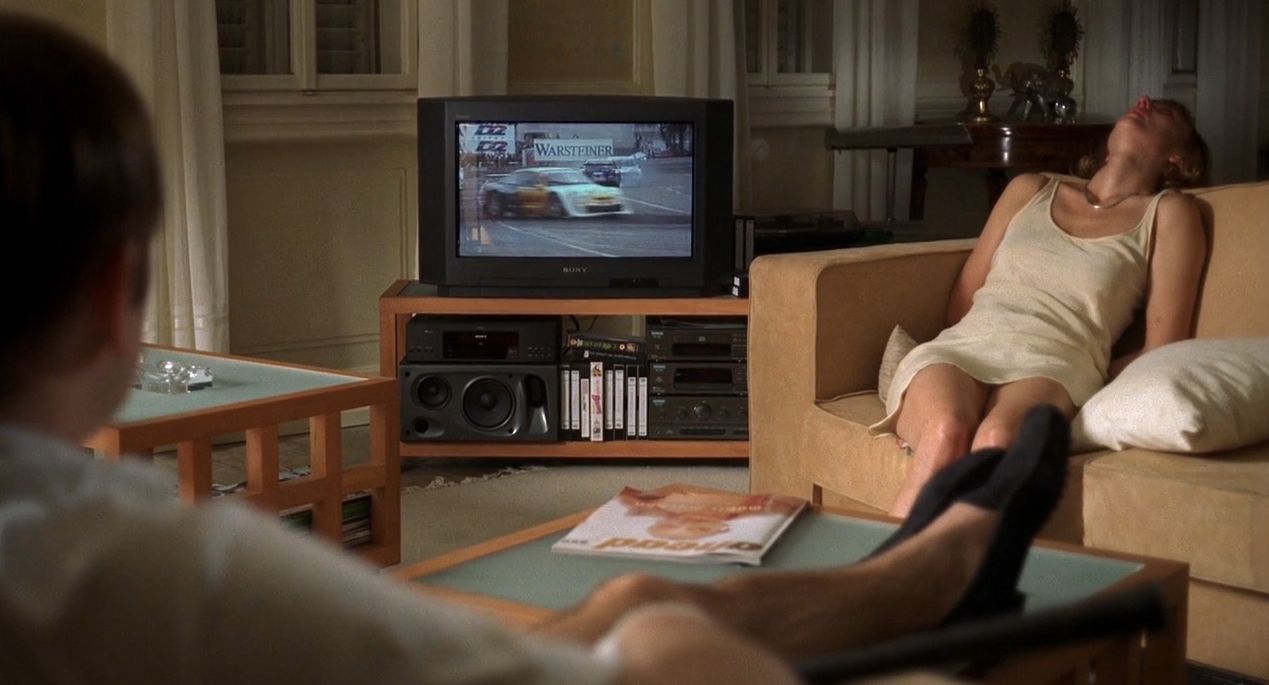
Funny Games displays Haneke's expert tension building mastery. There is a certain inevitability to the result of Peter and Paul's intrusion. We witness them at a neighbor's house early in the film, and they interact with another neighbor of Anna and Georg's while they are confined to their trap. Haneke is communicating to the audience that this is a game without end for these two, a game that will not stop until there are no more victims to overpower. Despite the ineluctable sense of the predicament, we are still gripped as the story unfolds, thanks largely to Haneke's scene construction and patient filmmaking. By taking his time with each scene and allowing the anxiety to build slowly, Haneke creates a truly terrifying film. It is clear, however, that Haneke is not attempting to create a horror film, for the terror he incites is more palpable as it involves human features we all possess. Most of us do not engage in random acts of control and violence as Peter and Paul, but all of us adhere to a particular edict of social expectations. In addition to Haneke's patient filmmaking building tension throughout the film, his excellent direction of actors and his camera's tendency to linger on a scene longer than most enables him to fill an actor's entire performance and capture their complete performance. This brand of filmmaking Haneke has favored throughout his career has resulted in his achieving of a brilliant performance from each of his actors in each of his films. Throughout his filmography, each of Haneke's films has been evenly performed with each actor shining in their role thanks to his trademark method of long takes behind the camera, benefiting both his film and the audience's experience of the film. In Funny Games, these long takes and Haneke's lingering camera act as a way to inject the viewer into the film. Haneke's camera is not another character in Funny Games, the audience is. The camera is not in place of the audience; it is our stand-in. We fully participate in the violence we are witnessing because we consume it, and not just in the film, but in our everyday lives. Michael Haneke has created such a gripping portrait of senseless violence that we cannot look away, and therefore, are a part of the display. We are confronted with our own participation in the violence that consumes the world through Funny Games, perhaps so we can reexamine our relationship with the atrocities by which we should be horrified. Haneke even closes the film with a freeze frame of Paul looking straight on at the camera filling the screen leaving us no option but to face our relationship with violence and rethink this interaction.
Never shying away from the difficult questions, Michael Haneke stays true to his adherence to questioning reality. What is reality and what shapes it? This question seems to have a hold on Haneke's mind and has presented itself in each of his works through a visible screen present in nearly all of his films. This screen presents the reality to the audience that the constant consumption of media is altering our perception of reality. Simply by continually allowing these images into our lives, a part of our reality is changing, based on the perspective of what is being shown. After this massive intrusion into our consciousness, we are left with a manufactured reality, a notion that Haneke has honed in on and brought attention to throughout his films. In addition to screens being a constant presence in our lives, Haneke calls attention to the fact that they are often showing violent imagery, leaving us desensitized to the pain of those with whom we share the planet. In Funny Games, Haneke is most overt with his focus on fabricated reality. Throughout the film, Paul, the mastermind of the intrusion breaks the fourth wall communicating directly with the audience. He asks us pointed questions about what we hope to see out of the film and what would satisfy our expectations. Haneke does this in such a way that subverts our every expectation without presenting it as a needlessly jarring ploy. The deck is stacked in favor of the two teenaged intruders, and that is made no clearer than when Anna can gain the upper hand only to have Paul rewind the film and avoid that outcome. Haneke is a master at penetrating his audience and calling to attention that which has been mindlessly accepted. Peter and Paul discuss reality near the end of the film with a bound Anna sitting between them, and their discussion is precisely that which has defined Haneke's career.
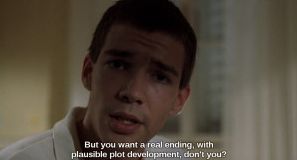
His apt exploration of reality and self in each of his films is why Haneke has established himself among the most significant working filmmakers and an endless source of inspiration for the days in which cinema seems like a cookie cutter industry. Examining the most profound psychological and philosophical questions and committing them to cinema has cemented Michael Haneke among my favorites. Always searching, Haneke is not satisfied by adhering to expectations or leaving the status quo unquestioned. Haneke broke the mold of cinema time and time again throughout his career resulting in some of the most fulfilling watches of modern cinema.
